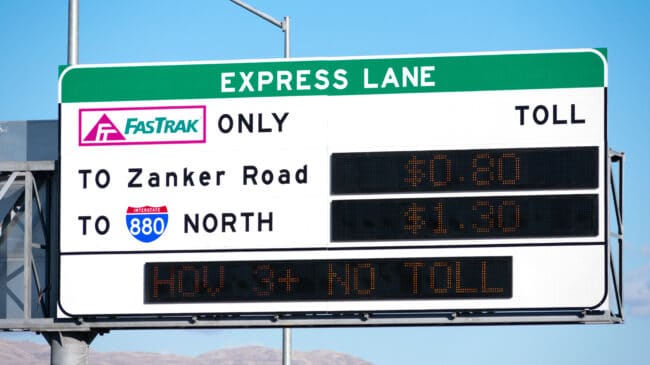Economic inclusion—making economic opportunities available to under-served social groups—is critical to a sustainable economy. Providing everyone with readily available and affordable access to the U.S. transportation network, including tolled facilities, is part of the solution.
Technologies such as electronic toll collection (ETC) and all-electronic tolling (AET) have made toll facilities safer and more efficient, with savings in toll operating costs being passed on as discounts to motorists who enroll in these programs. However, participating in ETC and AET programs can be more difficult and expensive for those that do not have ready access to conventional financial services, such as the unbanked (those who have no bank account) and the underbanked (those who have a bank account but continue to use financial services outside mainstream financial markets).
The Federal Deposit Insurance Corporation estimates that 5.4% of U.S. households (approximately 7.1 million) were unbanked in 2019. Others have estimated over 20 million households were underbanked in 2019. The elimination of cash options at many toll facilities in response to the COVID-19 pandemic could create problems for the unbanked, who function mostly in the cash economy. In addition, the pandemic has likely increased the size of the unbanked community during 2020-21, especially in urban areas.
Several toll road providers have implemented solutions that are now serving the unbanked and underbanked communities. Three of those described in this brief are the:
• AutoExpreso® program in Puerto Rico
• SunPass® in Florida, and
• FasTrak® in San Francisco.
These programs vary in the method with which they serve motorists, but all three seem to be serving the unbanked and underbanked communities in a user-friendly manner. Providing one or more user-friendly tolling options for the unbanked and underbanked is important to ensure economic inclusion for everyone. These efforts may also appeal to other motorists (as has occurred in Puerto Rico). Therefore, if implemented in a cost-effective manner, they may also have a significant impact on a toll road’s net revenue by reducing toll collection costs.
Full Policy Brief: Providing Electronic Toll Collection to the Unbanked and Underbanked
